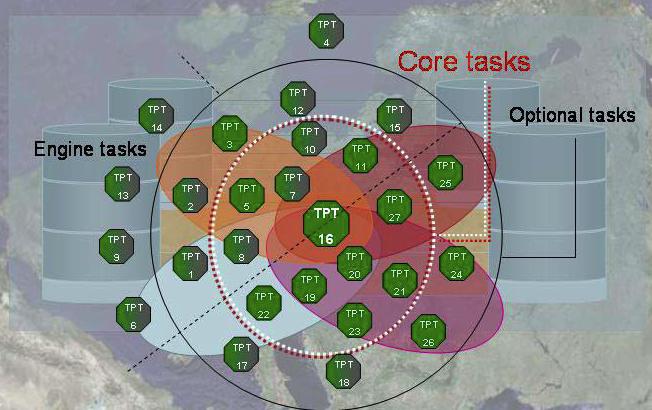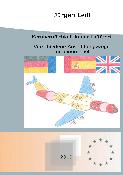Expected outcomes or findings:
At first our expectation of a scheme of task related occupational profiles of European core professions within the sector of the arircarft industry was already fulfilled, as we already identified similar professional tasks in the participating countries. Furthermore we work on the identification of best practice in eduaction and training which is related to these tasks and some further qualifications like concept of learning, working and co-operation. The findings of the two year running project should help to establish a real Eurpean vocational profile as well as the optimal way to train it including already proven empirics about the practice in the four participating countries France, Germany, Spain and the UK. Furthermore the validity of the evaluating instrument gains empirical results.
More in German language: ITB-Kolloquium 2009, May 20th
References:
- Bremer, Rainer; Arman, Goran; Bergli, Tor; Bremer, Rainer et. al.: Integrated Learning Processes, in: Qualifications for Post-16 Strategies and the German Approach to Paritiy of Esteem, in: Reforming upper Secondary Education in Europe, Lasonen, Johanna (Hrsg.), Jyväskylä 1996, S. 161-168.
- Bremer, Rainer; Employment and higher Education - a Collaborative Investigation across Europe, Brown, Alan; Manning, Sabine (Hrsg.), Tampere 1998, S. 45-63
- Bremer, Rainer; Developing a modern curriculum for the automobile Industry, in: European perspectives on learning at work - the acquisition of work process knowledge, Fischer, Martin; Boreham, Nick; Nyan, Barry (ed.), Luxembourg 2005, S. 323-338.
One of the major results:
A Vocational Profile in Aeronautic professions:

Other results to be found since March 2010 (in German language) in:
| LEDL, Jürgen: Kernberuflichkeit in der Luftfahrt. Verschiedene Ausbildungswege mit einem Ziel. ISBN: 978-3-936438-33-8 MetaGIS-Systems, Mannheim 2010 |  |
Starting off with the "hypothesis of convergence driven by universalization" this publication focuses upon the exemplary transnational structure of EADS / AIRBUS as of high interest for examining this hypothesis. The shareholding countries (in alphabetical order) France, Germany, Spain, and the UK represent the four European traditions of VET: France has a school-based system based on vocational profiles, Germany has a dual system also based on vocational profiles but with education in vocational schools augmented with training in a huge regulated private sector, Spain has no regulated system and the UK has a competence-based system, where delivery can take place in school, a training provider or in the workplace. So the systemic differences lead to a second (different) hypothesis of "adaptation due to divergence in the national systems".